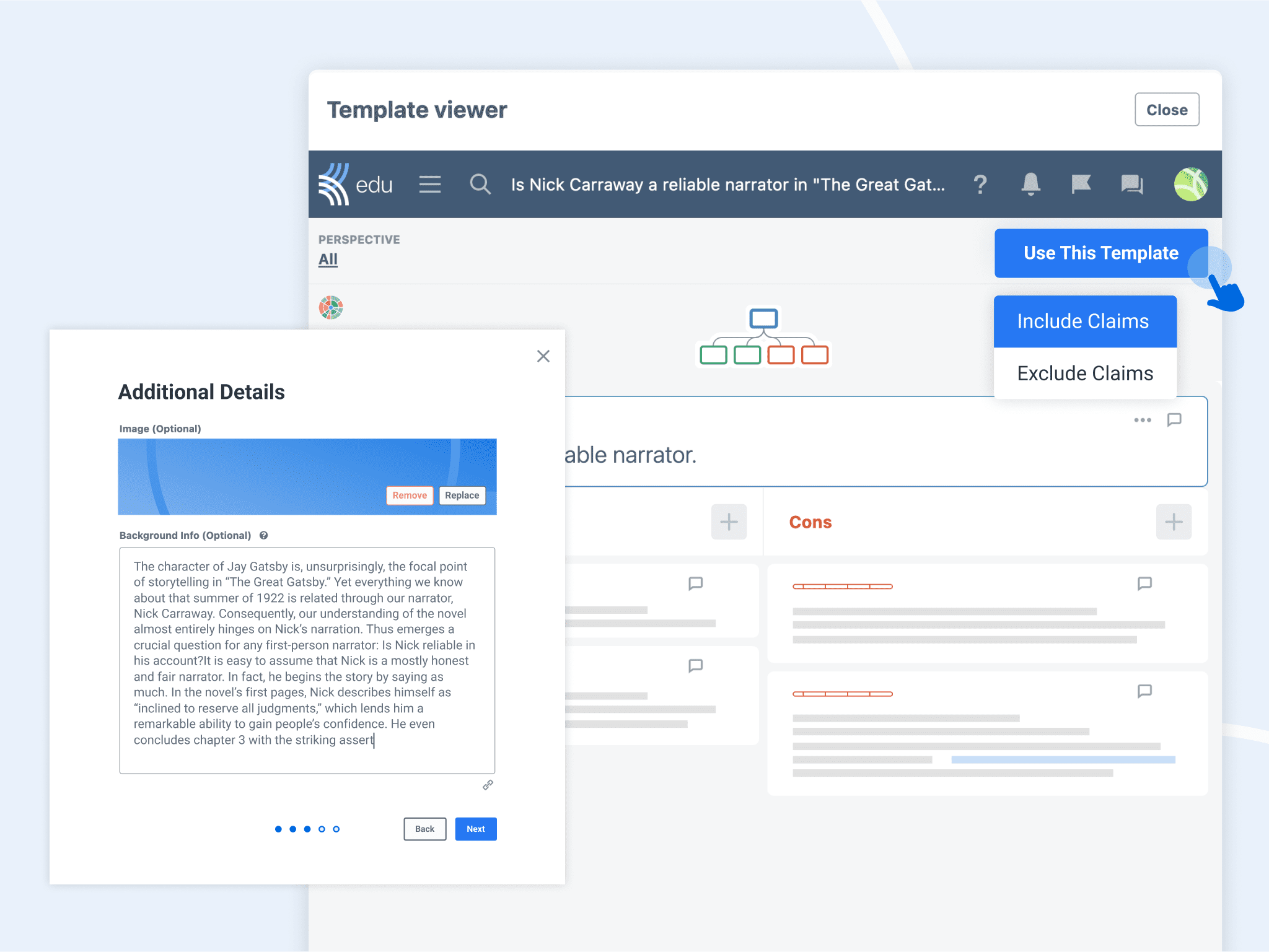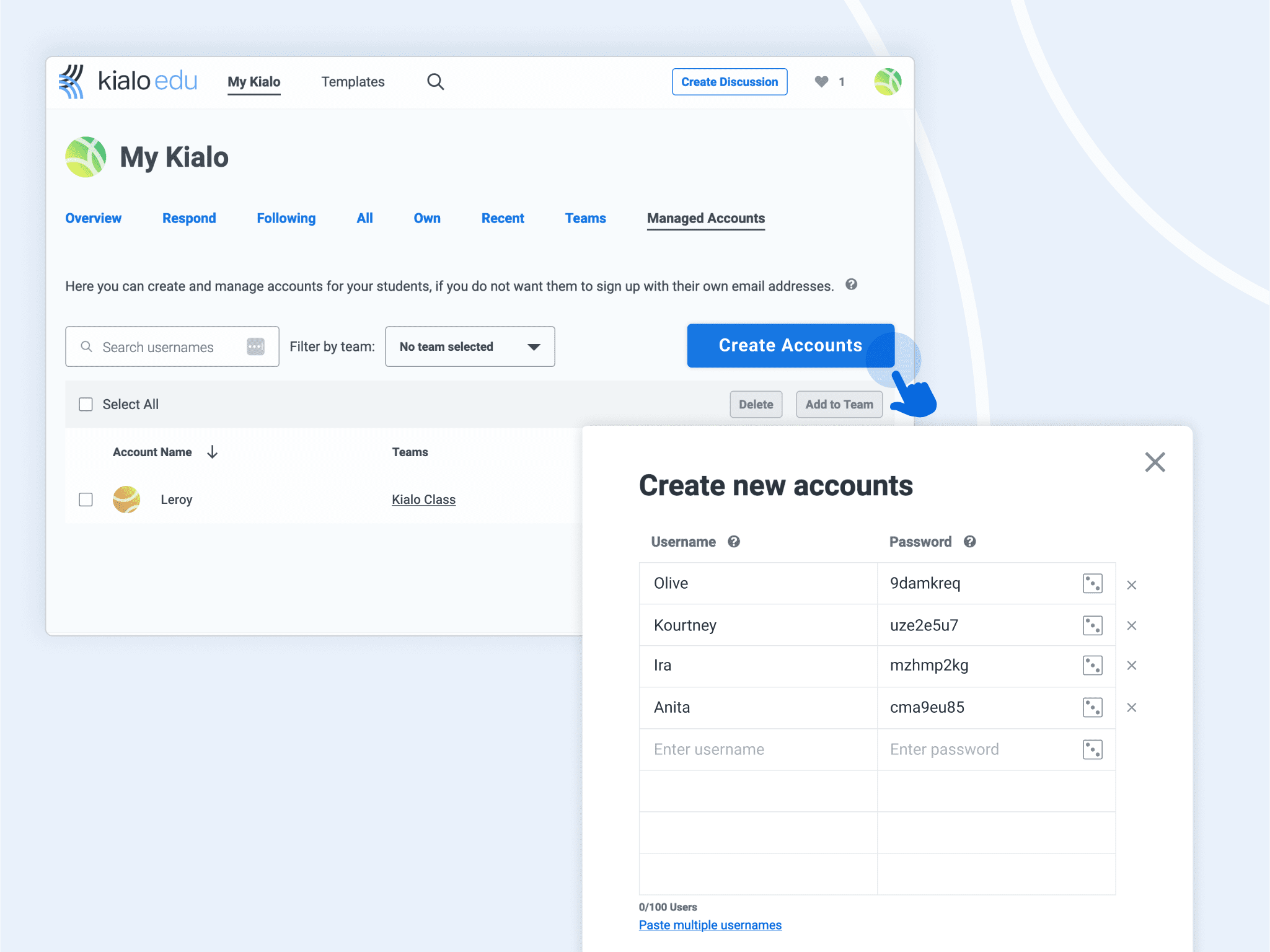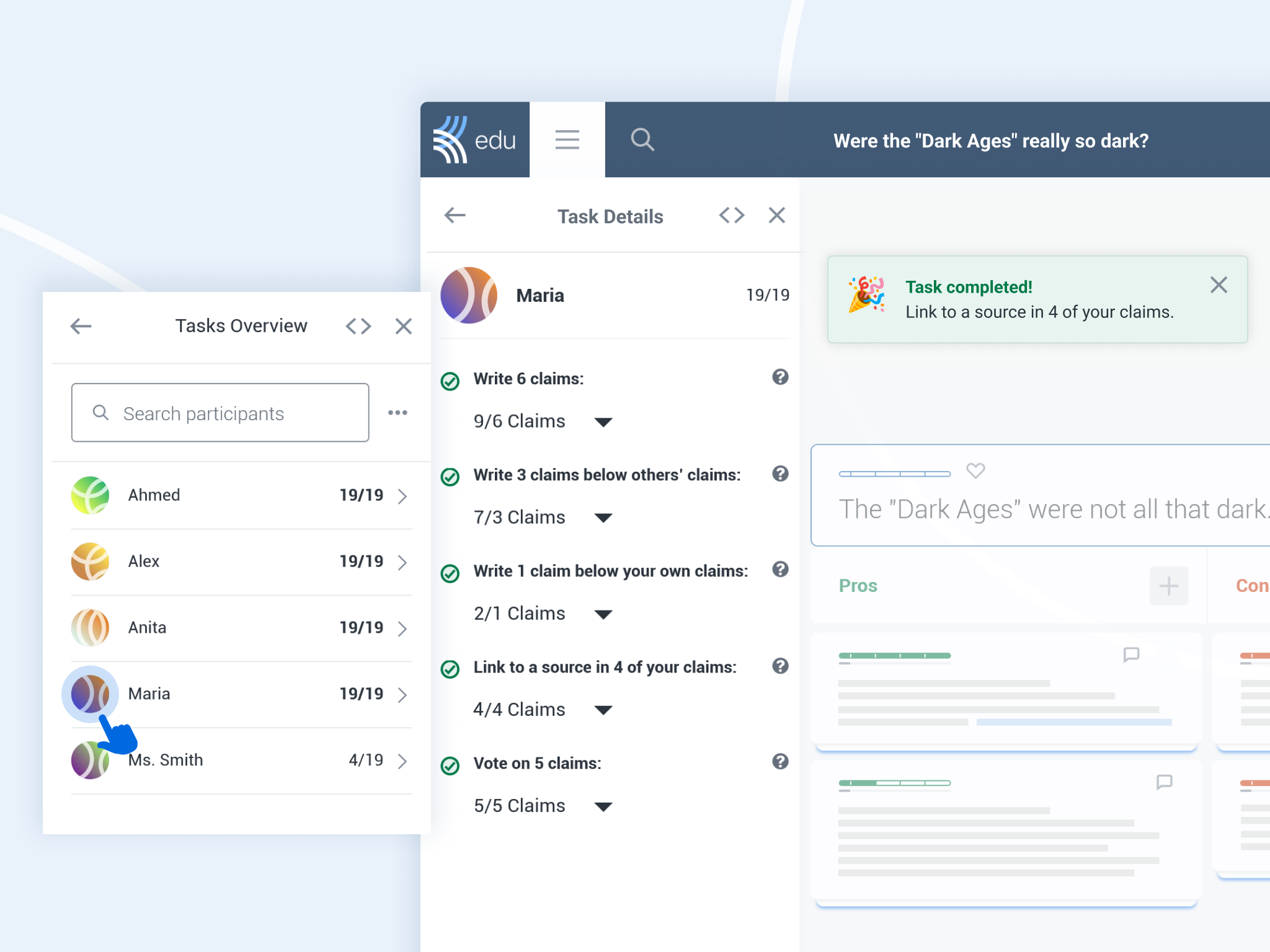The benefits of structured discussion and debate for older students are well-established. However, there are also numerous opportunities for younger students to develop their critical thinking and reasoning skills in a similar fashion!
At Kialo, we believe that children’s natural curiosity about the world and their place in it makes them excellent candidates for engaging in discussions.
Best of all, Kialo is completely free and always will be. This means you can easily provide younger students (from ages 8 and up) a structured space to explore topics relevant to their interests, encouraging them to defend, examine, and express their opinions. In this article, we’ll share some useful features and discussion activity ideas for younger students!
How younger students can benefit from Kialo Edu discussions
Kialo discussions are designed to work with all different age groups. Below are certain features that are useful for younger students.
1. Customized discussions for younger students

When exploring debate topics in our templates library, you can browse by age to make sure the content is suitable. All background information and starter claims are written to be age-appropriate in terms of language, reading difficulty, and content. In addition to that, teachers can easily customize these templates to best fit their class needs.
2. Managed Accounts for easy sign-in

Teachers can set up and control students’ accounts with our Managed Accounts. This is particularly useful when it comes to forgotten passwords (and usernames for that matter)!
3. Tasks to encourage student participation

Tasks give students practical goals for a discussion, and students are sure to get a boost from the celebratory icon when they complete a task objective.
Apart from that, one of the best parts of using tasks in a Kialo discussion is that a teacher can hand over a measure of control to their students while supervising their contributions from a distance in real-time, ready to step in when needed.
To help further students’ engagement in discussions, we have ready-made resources and activities for use with younger students — let’s take a look below!
Lesson plans for students ages 10 & under
Our lesson plans for ages 10 & under are ready-to-go with step-by-step instructions that you can use directly in your lessons! These lesson plans even include best practices tips as well as suitable warm-up and extension activities.
As an example, our lesson plan on Willy Wonka gives young students a taste of detailed literature and character analysis. Students will try to reconcile Willy Wonka’s good deeds with his behavior, exploring complex concepts and emotions in the process.
As there is a fully-developed discussion with central arguments for students to explore, this lesson can be a very supportive introduction to using Kialo Edu for younger students and teachers alike.
Discussion topics for elementary school students
Here’s a selection of discussion templates for young learners from across our subject categories currently available in our library. Using these templates is an easy way to get your students to discuss topics that are relevant and interesting to them!
Since our discussion templates are all customizable, you can change them to best suit your students’ needs. Try adding a link to the background info to model good sources of information, adding specific vocabulary in the starter claims, or changing the focus of one of the claims to match your curricular content more closely.
1. Social-Emotional Learning: Do children need privacy?
Where is that balance between giving children a measure of privacy to encourage independence and the need to protect them? Your students are sure to have something to say about this! Children’s increasing use of online spaces makes this subject all the more pertinent today.
In this discussion, young students will explore the challenges of finding that elusive balance and teachers can choose to open the conversation around online safety in a meaningful way.
As an extension, why not have your students make posters on the guidelines for safe online interactions? Or let them practice perspective-taking more explicitly by having them set up a custom perspective to vote on the claims from their parents’ points of view.
2. Geography: Which country would be most interesting to visit?
Our next template encourages students to explore the wider world and the excitement of travel, while also addressing some of the challenges cities and countries face. This multi-thesis discussion looks at four countries across four continents and is a great resource for helping children learn about and appreciate different cultures. You can always customize this discussion if you want to focus on alternative countries!
When students have finished the discussion, you could extend it further by asking students what the pros and cons of visiting their own country might be in the eyes of a visitor. Or, task them to explore solutions for some of the issues raised.
3. Philosophy: Should we ban zoos?
Moving on to a topic that will likely resonate strongly with many students — zoos. Young students may already have had this conversation with family or friends and formed their own opinions on the subject. They may be animal lovers who adore visiting the zoo, or animal lovers who object to the idea of zoos. This template has them delve more deeply into what is a quite complex question in a meaningful way.
Since students may have a strong opinion to express on this, why not ask them to follow up by writing a persuasive paragraph, explaining how they voted on the thesis?
4. Civics & Society: Should schools start later in the day?
Young students are sure to have strong opinions on bedtimes and early morning starts! Whether they are night owls or early risers, give them the opportunity to have their say on a topic that really affects their lives. Exploring the cost-benefit tradeoff of sleeping in in the morning will also help form their strategic decision-making skills.
As an extension, let them practice advocating for their beliefs. Arrange students who agree or disagree into small groups so they’re with like-minded classmates. Then, have them collaborate to prepare a speech to the school board or their parents making the case for their stance.
5. Just for fun: Which superpower would be best to have?
The answer is flight obviously, but would all students agree with this? This fun and low-stakes discussion will have students developing their argumentation and reasoning skills without even realizing it. Our engaging Just for fun discussion templates can help elicit strong opinions in a friendly format!
And as a follow-up, why not have students create their own comic strip showcasing their chosen superpower to make the most of the creative power generated by this discussion?
We hope you find our resource suggestions for younger learners helpful! If you don’t find what you’re looking for in our templates library, you can quickly create your free Kialo Edu discussion from scratch.
When it comes to these activities, we know younger learners have different needs and considerations to older students, and we’d love you to share your tips on what worked well for you with your younger students. Please get in touch on social media, or directly at feedback@kialo-edu.com.

